Men are born human. What they must learn is to be an animal. If they learn otherwise it may kill them, and kill life on the planet.
— Paul Shepherd
I’ve never seen a grizzly bear in the wild. Ursus arctos horribilus likely wandered into the northwest corner of my state a few times but it was a couple centuries before my first breath. The great bear was long gone from its easternmost range by the mid 1800s and had lost 98 percent of its historic range by 1920. We humans also lost something profound and irreplaceable during that time. The grizzly’s decimation was part of a template passed down from the Roman Empire and empires before them: In order to take the land, to divide and fence and loot, you’ve got to subdue the natives. You’ve got to subdue their revered beasts and their spiritual guardians, the embodiments of wilderness.
You’ve got to kill their gods. You’ve got to kill the wild.
Acre by acre and species by species, every hour of every day we’re still killing the wild. It seems impossible at this point to think we can save any of it, really. The destruction is inevitable, our expectations already lowered and accepted, our apathy already on display. For a great many of us, cardinals at the feeder and squirrels in the city park are banal representatives of the “others” as professor of natural ecology and writer Paul Shepherd called those untamable souls whose flesh and hides fed and sheltered us, whose ferocity and stealth we feared and respected, whose qualities we tried to emulate, whose kinship gave us our sense of place both geographically and spiritually. As Shepherd said: “Longer than memory we have known that each animal has its power and place, each a skill, virtue, wisdom, innocence — a special access to the structure and flow of the world. Each surpasses ourselves in some way. Together, sacred, they help hold the cosmos together, making it a joy and beauty to behold, but above all a challenge to understand as story, drama, and sacred play.”
Somewhere between the genesis of sky gods and the invention of Facebook, we’ve accepted this loss as at our best a sad footnote written on the quickly unraveling scroll of civilization’s progress and at our worst as a good thing, clearing the path for more progress. It makes for a sterile world. “But it’s better for us,” that’s what we tell ourselves. It’s damn sure better for profits across the board. In North America it was the fierce, clever, subversive, unyielding forms of grizzly, wolf, mountain lion, and jaguar that stood in the way from the get-go. They, along with some of their herbivore and avian counterparts still stand in the way. And the system of an empire still understands that killing off the wildness is a requirement in order to loot the land.
As you’ve likely deduced, the recent delisting of the Yellowstone grizzly inspired this writing. I kill deer and turkeys and squirrels with no apologies. “Wildness is what I kill and eat for I, too, am wild” is another one of my favorite Paul Shepherd quotes. Killing a bear ain’t my cup of tea for reasons I won’t go into here, however, I don’t begrudge those that choose to take an ursine life for the right reasons. This is not about bear hunting or some Pagan reverence for the individual bear.
This writing is not about condemning a science based wildlife management decision. And let’s be real, since when has science-based anything been a characteristic of this administration? It’s about calling a remnant population of approximately 700 Yellowstone grizzlies — about half the entire grizzly population in the US that once numbered more than 50,000 and now living on two percent of their former range — a conservation success story. You can read Secretary Zinke’s words of congratulation.
But, per usual, there’s more to the story than numbers, though, even the numbers here are paltry when you look at the big picture. There’s the issue of genetic isolation, of disruptions of behaviors like young adult bear dispersal, and there’s also the absolute refusal to acknowledge that conservation success does not mean hitting an arbitrary population goal. Conservation success is about the habitat and a holistic understanding that protection of grizzlies means protection of grizzly habitat and that habitat is key to wildlife management for all species.
Delisting by those in power now is not about a job well done, a successful repopulation. It’s about, again, removing the spiritual guardians of a place, making more room for whatever makes more dollars. When you hear about motions to delist a species, this is really what you’re hearing. It’s the ominous rumblings of progress and profit trying hard to sound like conservation success in action. “We did it!” We who care say, and then we hardly notice being pushed aside for the obvious endgame, satisfied and rolling in our pride, patting ourselves on the back for saving the “wild” as long planned exploitation gathers itself to move in.
“Animals are among the first inhabitants of the mind's eye,” said Paul Shepherd. “They are basic to the development of speech and thought. Because of their part in the growth of consciousness, they are inseparable from the series of events in each human life, indispensable to our becoming human in the fullest sense.”
When many of the others are gone, when the world is completely subdued and bent to the will of Lucre, how will we even know who we are? And how long before we meet the fate of the others.




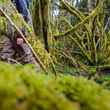







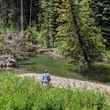


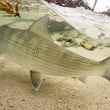









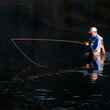

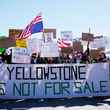
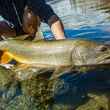
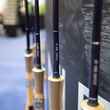
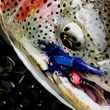
Comments
Anonymous replied on Permalink
Beautiful. And sad.
Gordon replied on Permalink
This commentary is totally off base. I am no Trump fan but tying the de-listing of grizzly bears to Trump administration is "fake news". This has been a long scientific process to get things right. Hunters and fisherman are the most interested conservationists in our country. De-listing the Grizzly Bear is a success story and shows how science in conservation can work. Please do your homework before you shoot from the hip. And keep up the great work on protecting public lands and clean water. Habitat for wild things, places to hunt and fish are the most pressing matters we have once we have food, shelter and our health.
Johnny Sain replied on Permalink
Not off base at all. The delisting is happening under the Trump administration and, so far, science has rarely been a factor in any Trump administration decisions -- both true. It has been a process since the Obama administration, but it didn't happen. Actually, it started in 2003 and they were delisted in 2007, but that decision was overturned.
The main point about delisting under this administration is that the delisting likely won't readministered if the grizzly population drops.
Habitat is key, and that really was my ultimate point. Habitat has not been addressed on a large enough scale to make the population sustainable regardless of who is paying for it.
Cam replied on Permalink
Wow, cheer up butter cup. All is not lost . Come out west and see them. There are far more bears then the "official " count. So much so that they are starting to move into populated areas, feeding on household garbage etc..... This never ends well for the bears. Strict hunting will hopefully instill a fear of man again in the population and reduce the conflicts you never hear about.
Ian Cox replied on Permalink
Paul Shephard was a primitivist who believed that mankind was happier and better off when we lived in caves. I do not see much sense in debating the fate of grizzlies from the perspective of mankind as cave dweller. It doesn't seem very practical. For my part I am happier persuing trout with fly rod in hand rather than trying to spike them with a bone tipped spear. And waders work so much better than skins.
kelly replied on Permalink
not talking about the black bear here chump
Pages